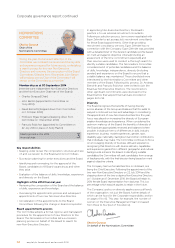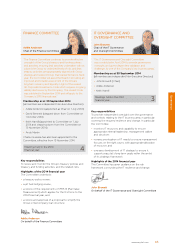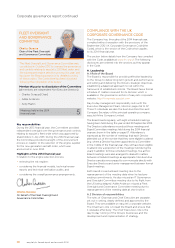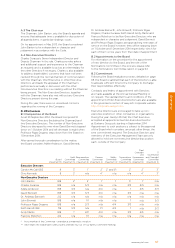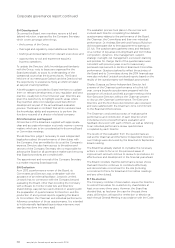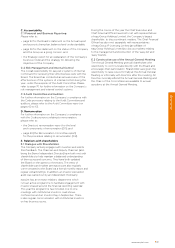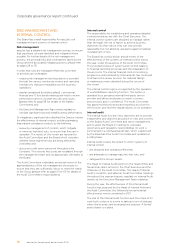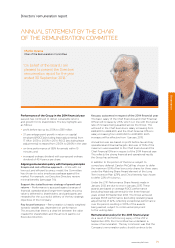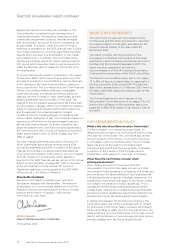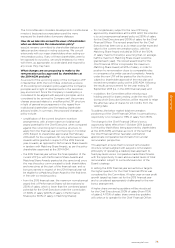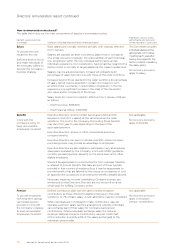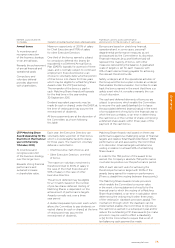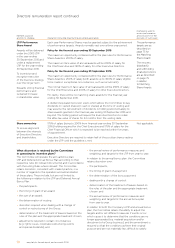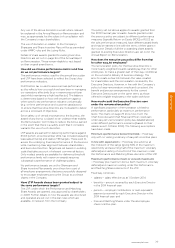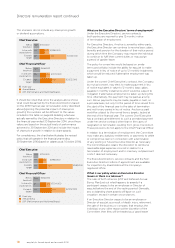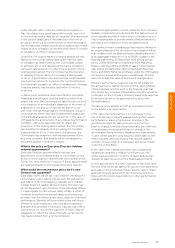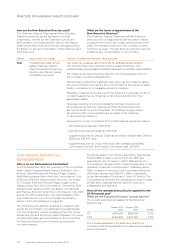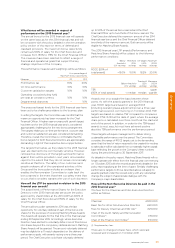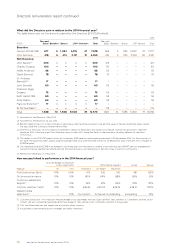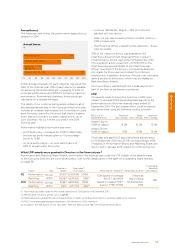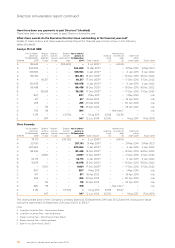EasyJet 2014 Annual Report Download - page 76
Download and view the complete annual report
Please find page 76 of the 2014 EasyJet annual report below. You can navigate through the pages in the report by either clicking on the pages listed below, or by using the keyword search tool below to find specific information within the annual report.
74 easyJet plc Annual report and accounts 2014
Directors’ remuneration report continued
How is remuneration structured?
The table below sets out the main components of easyJet’s remuneration policy:
Element, purpose and link
to strategy Operation (including maximum levels where applicable)
Framework used to assess
performance and provisions
for the recovery of sums paid
Salary
To provide the core
reward for the role.
Sufficient level to recruit
and retain individuals of
the necessary calibre to
execute the Company’s
business strategy.
Base salaries are normally reviewed annually, with changes effective
from 1 January.
Salaries are typically set after considering salary levels in companies
of a similar size and complexity, the responsibilities of each individual
role, progression within the role, individual performance and an
individual’s experience. Our overall policy, having had due regard to the
factors noted, is normally to target salaries at the market median level.
Salaries may be adjusted and any increase will ordinarily be (in
percentage of salary terms) in line with those of the wider workforce.
Increases beyond those granted to the wider workforce (in percentage
of salary terms) may be awarded in certain circumstances such
as where there is a change in responsibility, progression in the role,
experience or a significant increase in the scale of the role and/or
size, value and/or complexity of the Group.
Salary levels for current incumbents, effective from 1 January 2015 are
as follows:
• Chief Executive: £698,600.
• Chief Financial Officer: £430,800.
The Committee considers
individual salaries at the
appropriate Committee
meeting each year after
having due regard to the
factors noted in operating
the salary policy.
No recovery provisions
apply to salary.
Benefits
In line with the
Company’s policy to
keep remuneration
simple and consistent.
Executive Directors receive modest personal accident and life
assurance cover (0.5 x salary), at the same levels as the wider
workforce. The cost to the Company of providing these benefits
may vary from year to year depending on the level of the
associated premium.
Executive Directors receive no other conventional executive
company benefits.
Executive Directors can pay for voluntary benefits, where Company
purchasing power may provide an advantage to employees.
Executive Directors are also eligible to participate in any all-employee
share plans operated by the Company, in line with HMRC guidelines
currently prevailing (where relevant), on the same basis as for other
eligible employees.
Should it be appropriate to recruit a Director from overseas, flexibility
is retained to provide benefits that take account of those typically
provided in their country of residence (e.g. it may be appropriate to
provide benefits that are tailored to the unique circumstances of such
an appointment as opposed to providing the benefits detailed above).
Necessary expenses incurred undertaking Company business are
reimbursed so that Executive Directors are not worse-off on a net
of tax basis for fulfilling Company duties.
Not applicable.
No recovery provisions
apply to benefits.
Pension
To provide employees
with long-term savings
via modest pension
provisions in line with
the Company’s strategy
to keep remuneration
simple and consistent.
Defined contribution plan with the same monthly employer
contributions as those offered to eligible employees in the wider
workforce, of 7% of basic salary. A cash alternative may be considered.
While individuals are not obliged to make contributions, easyJet
operates a pension salary sacrifice arrangement whereby individuals
can exchange part of their salary for Company paid pension
contributions. Where individuals exchange salary this reduces
employer National Insurance Contributions. easyJet credits half
of this reduction (currently 6.9% of the salary exchanged) to the
individual’s pension plan.
Not applicable.
No recovery provisions
apply to employer
pension contributions.


